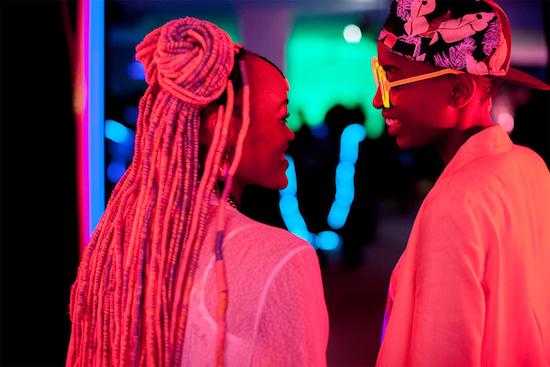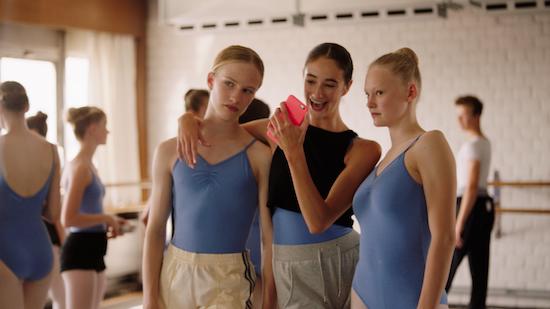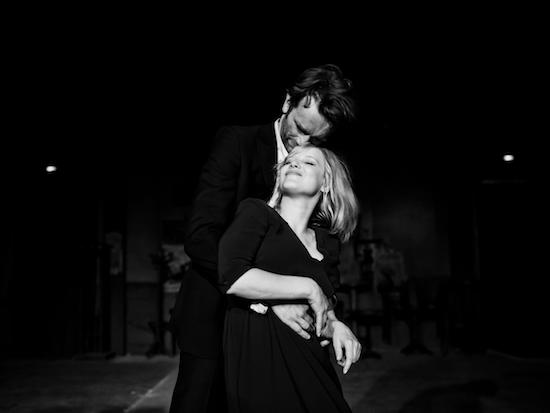Cold War, dir. Pawel Pawlikowski
“Did you fall in love while you were there?” seemed to be the first question everyone asked when I came home from the French Riviera. Every year, cinema darlings religiously converge to celebrate worldwide industry giants at the Festival de Cannes. But this year, for the 71st edition, something felt different. The return of bona fide legends and personae non gratae stirred excitement, but a greater, quieter trepidation for new names and unfamiliar faces was brewing. And for good reason too – finally, love was in the air on the Croisette.
From the off, everybody wants to know whether you saw the new Lars Von Trier film. What was Spike Lee’s latest like? Why was Jean-Luc Godard on FaceTime, and how did he win a prize that the Jury literally invented just for him? As long-awaited films premiere to a small, elite audience, newsworthy stunts often take precedence over the praise of slow-burn emotion. And it’ll come as no surprise to anyone that the news ain’t always nice. So raw violence, archival terror, and formal experimentation thrive in an environment that prima facie showcases new talent, but is more often remembered for its provocative veterans. However, fresh names are now challenging the status quo with love stories of a different breed. And judging by the response, it seems that resident artists of the festival could start taking note.
Pawel Pawlikowski is hardly a rookie filmmaker, with two BAFTAs and an Oscar for Best Foreign Language Film under his belt, but he is new to Cannes. Cold War is the Polish filmmaker’s first competition entry, a love story spanning twenty years and several boundary-crossing countries. A mismatched but deeply passionate pair, Wiktor (Tomasz Kot) and Zula (Joanna Kulig), come together effortlessly in music and in love, and keep falling apart just as easily. A primal attraction defines their meeting – and across missed dates, broken promises and other relationships, it never truly fades away. Although his film can be seen as some kind of tragedy, defined by the impossibility of its endless romance, the fact that the eighty-four minutes of Cold War are passionately loyal to the one thing keeping these two lovers emotionally alive (the way they feel about each other) seems hopeful. Throughout an era of post-war communism in Poland and the laborious politics of the 1960s in France, Pawlikowski captures the minute extravagance of the sheer power of love. And by awarding him as Best Director, the Jury clearly recognizes that.
The fate of the first Kenyan film to be shown in Cannes felt as doomed as Pawlikowski’s tragic romance, before it even screened. Rafiki, Wanuri Kahiu’s third feature, was banned by the Kenya Film Classification Board only a few days before the festival began. Adapted from Monica Arac de Nyeko’s short story ‘Jambula Tree’, the film focuses on Kena (Samantha Mugatsia) and Ziki (Sheila Munyiva), the daughters of rival politicians who, despite family loyalties, become friends and soon fall in love. As their relationship blossoms, the pair have to assess how they choose to care for each other, and what they’re willing to fight for in a society that prohibits same sex relationships by law. Although it’s a work of fiction, Rafiki suffered real-life consequences. KFCB chief executive Ezekiel Mutua explained the ban: “the objective is clearly to normalize homosexuality in Kenya and the message in the story is to celebrate the resilience of youngsters involved in lesbianism”. The problem, then, isn’t just with the subject matter – Rafiki is prohibited because love is allowed to thrive. In the eyes of the Kenyan censors, by giving Kena and Ziki a positive future, despite violent adversity, Kahiu’s film normalizes the struggles of LGBT relationships in Kenya and supports their success. Its message of hope is what makes it a threat. But Rafiki does important work in destigmatising Kenya’s draconian laws. "May this film shout," Kahiu urges, "where voices have been silenced.". Perhaps a story which ends in disaster wouldn’t have been shunned at home. But it probably wouldn’t have wooed the Un Certain Regard audiences as much, either.

Rafiki, dir. Wanuri Kahio
While hopeful relationships between two people have been giving life to great works across the festival, the optimism of love in Cannes was also elevated through the prism of self-care, and the importance of the love we allow ourselves to feel within. In Camille Vidal-Naquet’s debut feature, Sauvage, a young male sex worker (Felix Maritaud) reckons with his own search for affection in a world where nothing is free. When dealing with such taboo topics, it’s easy to resort to a grim exposition of the hardships faced by a marginalised community. There’s no lack of violence in the film, or of instances of emotional and physical abuse that can be difficult to stomach – but Sauvage is always rooting for its hero. It’s a humble story with a simple motivation, one that is universally relatable: Leo wants to find love, to give and to receive with his own level of control. The beating heart of Sauvage is indicated by the relentless passion of its main character – Leo is luminous as he sets himself free each time. Surviving major aggressions and transcending quotidian dangers, the fact that Leo is still standing after everything, still running and still loving, shows that it’s not over. He may still be searching, but there’s a lot of hope left for him. The film opened the Critics’ Week to rapturous applause and earned BPM actor Felix Maritaud the Queer Palm award for his performance. The actor, director and story beam through the dangers. Leo’s future is hopeful, and so is the film’s.
Reckoning with a way to keep loving when you feel like you don’t even belong to yourself, Lukas Dhont’s debut feature Girl celebrates the gracious persistence in finding hope beyond appearances. Lara (Victor Polster) is a fifteen-year-old girl, born in a boy’s body, who wants to be a ballerina. As she wrestles with the biological constraints that are challenging her identity, she’s also pursuing a dream that hangs on the physical relentlessness of its aspirants. Lara’s story isn’t tragic, but it isn’t rosy either. Her growing pains are framed with great care, as she navigates the formative years of building relationships that can often be determined by snap judgements. Through her friendships, potential romance and close family unit, Lara’s relationship with her body speaks deeply about the emotional impact of binary categorisation – but also how much can be achieved with patience and effusive care for the things you love most. Dhont’s camera lets every human body shine, with the kind of glow you can only thank endorphins for. By providing such a delicate insight on a painful contradiction, it’s no wonder Girl has already become the breakout hit of the festival: winner of the Caméra d’Or, the Queer Palm, and Best Actor for Victor Polster – the film has also just been acquired by Netflix.

Girl, dir. Lukas Dhont
As far as the Palme d’Or is concerned, when Hirokazu Kore-eda’s Shoplifters was announced as the winner, many were pleasantly surprised. The Japanese director isn’t an unfamiliar face at the festival and his latest film, a deeply moving family portrait that defies categorisation, was instantly loved by those who saw it. But it was a somewhat unexpected win for a film like Shoplifters. Formally straightforward and tonally rich, it’s reminiscent of the aforementioned films in terms of the bittersweet encouragement it leaves you with. Kore-eda’s dysfunctional family advocates tailor-made love, and the lengths one goes to in order to maintain it. Despite bureaucratic definitions and legislative restrictions, the film ends in favour of the humans at its core. There’s no fairytale ending but it doesn’t feel like a (figurative) death sentence, either. Celebrating familial ties and transcendental love, Shoplifters emotionally subverts its petty crime-based premise. It’s the best Palme winner in years.
Having prepared for the worst, I left my first Cannes feeling surprisingly light and rather emotional. Across the twenty-five films I saw, the much anticipated and the newly discovered, the overarching theme wasn’t one of violence or despair. It was one of hope. Perhaps my viewing choices subconsciously favoured work from filmmakers mirroring my own relative inexperience at the festival, or maybe the infamous Cannes queues made a lot of the decisions for me. But it does feel like this shift is rippling throughout the industry, responding to an audience that has been exhausted by harassment and assault in the real world for too long. Celebrating cinema as a mirror of who we are, but also who we could be, what better place is there than the most prestigious film festival in the world to initiate positive change?
I think I did fall in love in France. I fell in love with these different voices, already destined to pave a fresh way at the festival, and with their stories, proving that despite the upsetting contradictions that make up every daily newsreel – love can, and still does, find a way.


